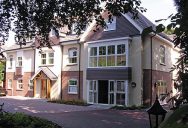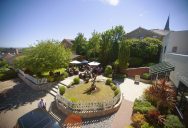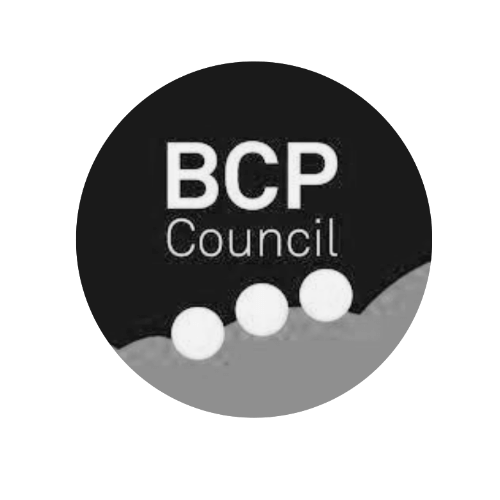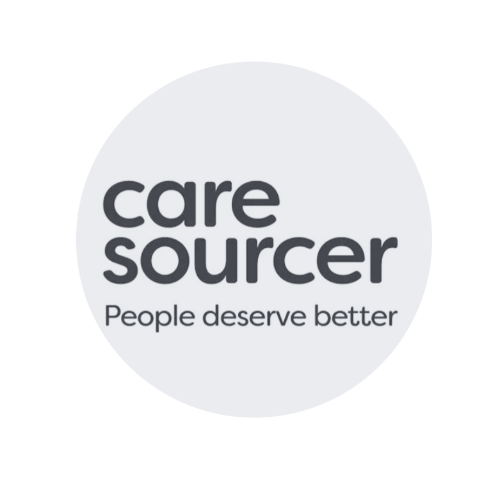What is Physical Therapy for Neurological Conditions?
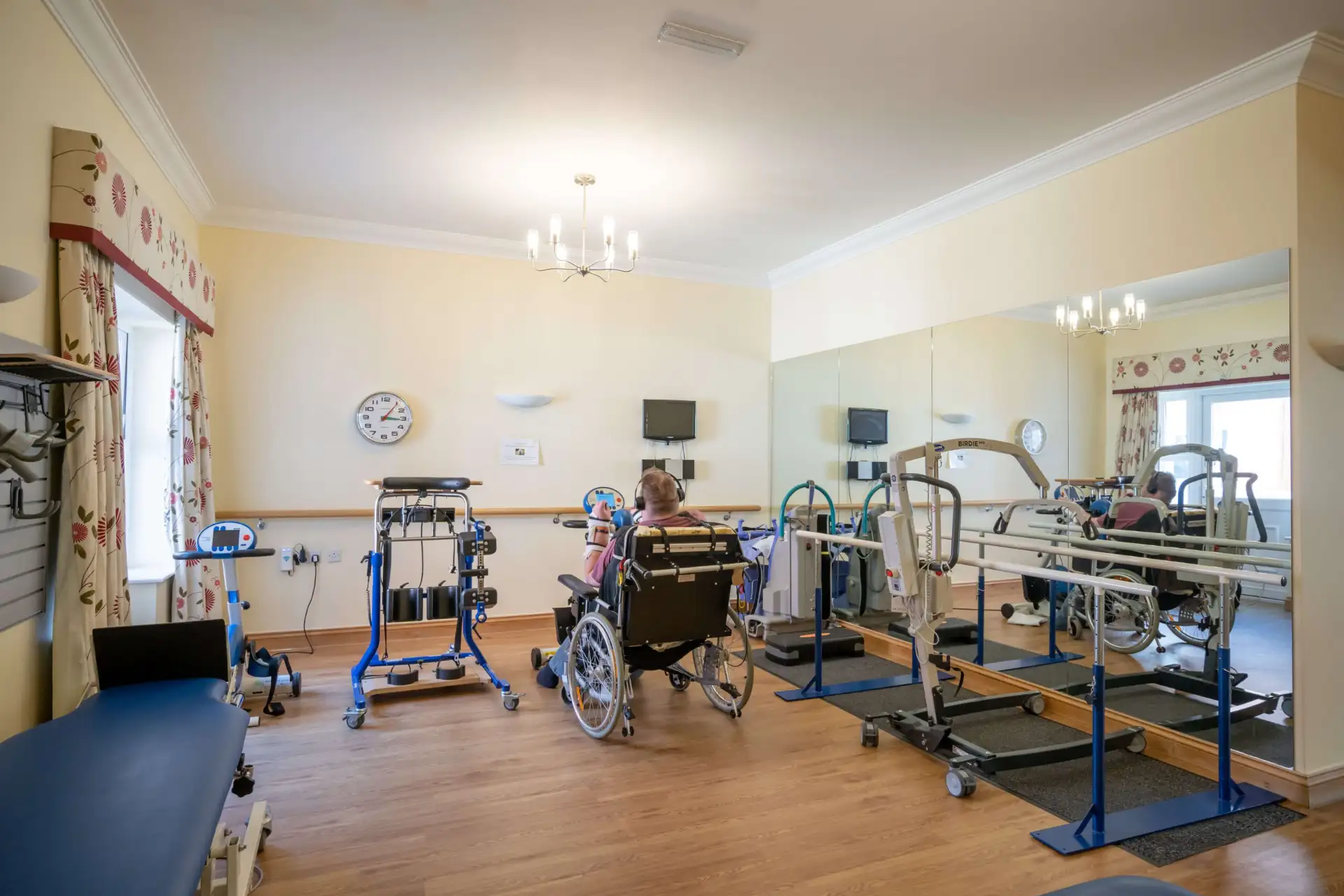
Neurological conditions can have a massive impact on movement. Whether your loved one has been diagnosed with Multiple Sclerosis, Motor Neurone Disease, or Parkinson’s Disease, you will likely see their movement and motor skills reduce as the disease progresses. Physical therapy is often used to slow down the effects of these diseases and, in some cases, regain anything lost so that your loved one can remain as independent as possible.
As a neurological condition affects the brain and nervous system, it is not uncommon to see those living with them struggle with their movement or eventually lose it completely.
Therefore, physical therapy, also known as physiotherapy, is a common part of nursing care for these conditions.
At LuxuryCare, we work with physical therapists at our specialist neurological care centre, Branksome Park. Physical therapy is a core part of the bespoke care plans we create for your loved one with a neurological condition as we work to maintain their movements and their independence.
In this blog, we share some of the physical therapy exercises often included in our resident’s therapy and what they aim to achieve.
Simple Walking
One of the more basic exercises that residents will complete with physiotherapists is simply walking.
This will be a gentle task, often located in the privacy of their own room. Your loved one will be encouraged to walk around their bed or from their bed to a chair. These will be lengthened and shortened to reflect your loved one’s ability on that day – our staff understands that we all have good and bad days, so we won’t push your loved one too far if they are struggling. However, they also won’t reduce their plan just yet and will try to persuade them to walk a little further in the next session.
This exercise is usually targeted towards those whose neurological disease has progressed, potentially limiting other motor skills and movements.
The aim of this task is to maintain strength and a level of flexibility in your loved one’s legs, enabling them to stand up and walk around for longer so that they can potentially move around the care home more freely and independently.

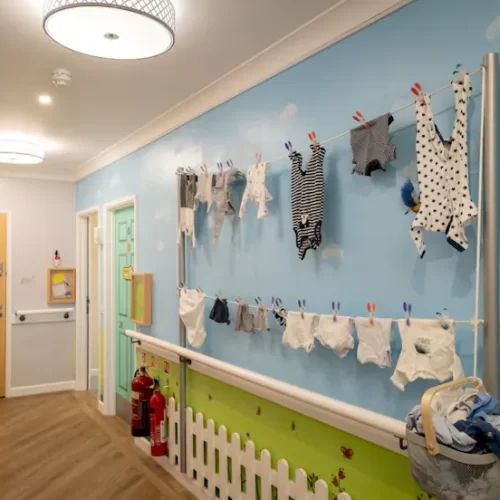
Task-oriented Training
The point of physical therapy for those with a neurological condition is to help them in their everyday life. This is why tasks will often mimic movements and motions that are used in your day-to-day life.
These activities might replicate movements such as standing up from a chair, moving cutlery from a plate to their mouth, or brushing their teeth.
The point of these tasks is to maintain important everyday actions so that your loved one can complete them in their day-to-day routines without help. In doing this, we work towards improving or maintaining their emotional and mental well-being because it reduces frustrations and feelings of incompetence that they might feel when struggling to complete tasks they were once able to do on their own.
Strength Training
In physical therapy, the focus isn’t solely on movement. It will also look at building and maintaining strength – which usually allows movement most of the time.
These tasks can include the use of weights, resistance bands and body weights to target certain muscle groups and areas, such as the abdominals, quadriceps, biceps or back muscles.
These activities strengthen the body’s muscles or work to maintain strength so that your loved one can maintain balance and movement for everyday tasks.
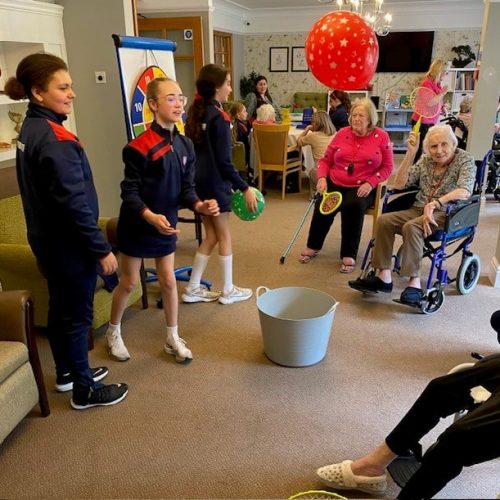
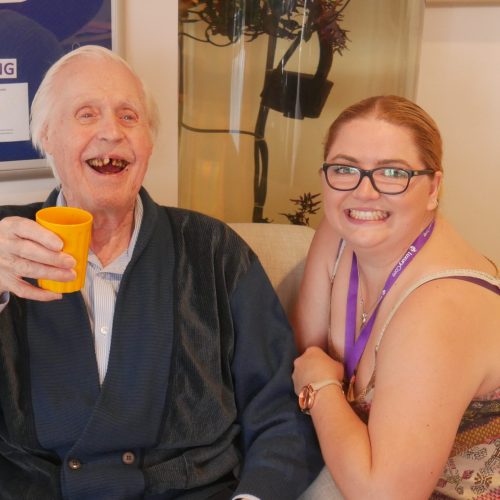
Constraint Training
In some cases, such as residents who have suffered a stroke, there will be a stronger side and a weaker side.
When this is the case, your loved one will use their stronger arm or leg more, maintaining that strength while letting the weaker side grow weaker.
Physio Therapists will likely introduce constraint training into your loved one’s exercise regime if they notice this habit. In these tasks, they will restrict the movement of the stronger side, which will force your loved one to use their weaker side.
The idea of this type of activity is to try and encourage the use of the weaker side so that muscle strength and mobility improve, hopefully, to a point where they will be able to use it just as easily or a little more frequently.
Virtual Reality Or Games
No form of therapy should be boring, so physiotherapy will often include games and the likes of virtual reality and other technology as the foundation of a set of exercises.
Virtual reality is a great way to get your loved one to do certain actions that they might not need in their daily routine at a care home but use a certain muscle or group of muscles that will help other movements.
Everyone loves a game, so the intention of using games and technology is that physiotherapist leaders can tailor an activity around a game that your loved one likes, making it fun and engaging for them so that they don’t feel like they are working.
Positive experiences like these are vital in rehabilitation and physical therapy, as they help your loved one feel motivated and engaged and that they are benefiting from each session.
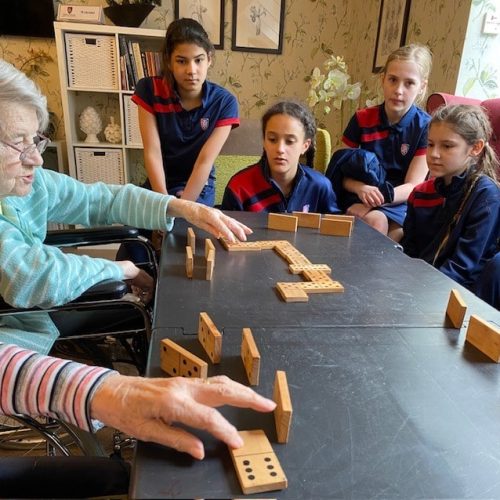
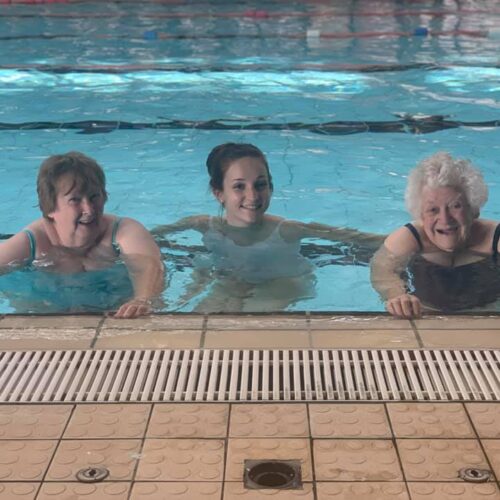
Aquatic Therapy
If possible, some physical therapy might take place in a local swimming pool.
Being surrounded by water provides support, allowing easier movement without the fear of falling. This can be a great way to exercise leg, back and stomach muscles. These exercises are also easy on the joints because of the buoyancy of the water.
Additionally, the viscosity of water creates a gentle resistance to some movements, which is a great way to build strength without the use of weights.
Physical Therapy at LuxuryCare
No matter which of our care homes your loved one lives in or whether they are receiving residential, nursing or dementia care, physical therapy is provided as part of your loved one’s care plan if we think they would benefit from it.
The core of our care is helping your loved one remain independent and mobile. Just because they are in a space with 24-hour care doesn’t mean they should lose their freedom; in fact, we believe it should enhance it.
We have a neurological specialist care home, Branksome Park, where all of our staff are highly trained to provide dedicated care for a variety of complex needs.
As most of our residents here have regular physical therapy sessions, we have dedicated rehabilitation rooms, which are equipped with state-of-the-art facilities to help recover and rebuild their functional and cognitive skills following medical events such as stroke, spinal cord injuries, brain injuries and hip replacements, or to maintain independence and movement after diagnosis of other neurological conditions such as Parkinson’s, Multiple Sclerosis or Motor Neurone Disease.
Rest assured that physical therapy will be a small part of your loved one’s life at one of our care homes, as we will our time with a wide range of activities and day trips, home-cooked meals, plenty of snacks and tea, and relaxation time in our comfortable and cosy communal areas and gardens (when the weather is nice enough).
Learn more about how we include physical therapy in care plans for our residents with neurological conditions by visiting Branksome Park. This offers you and your loved one to see for yourself the dynamic and exciting lifestyle we create in our care homes, chat with staff and residents about their experiences and see our rehabilitation rooms.
Call us on 01202 013319 or complete our online contact form, and we will call you back to arrange a visit.
We look forward to welcoming you into our home and community.

